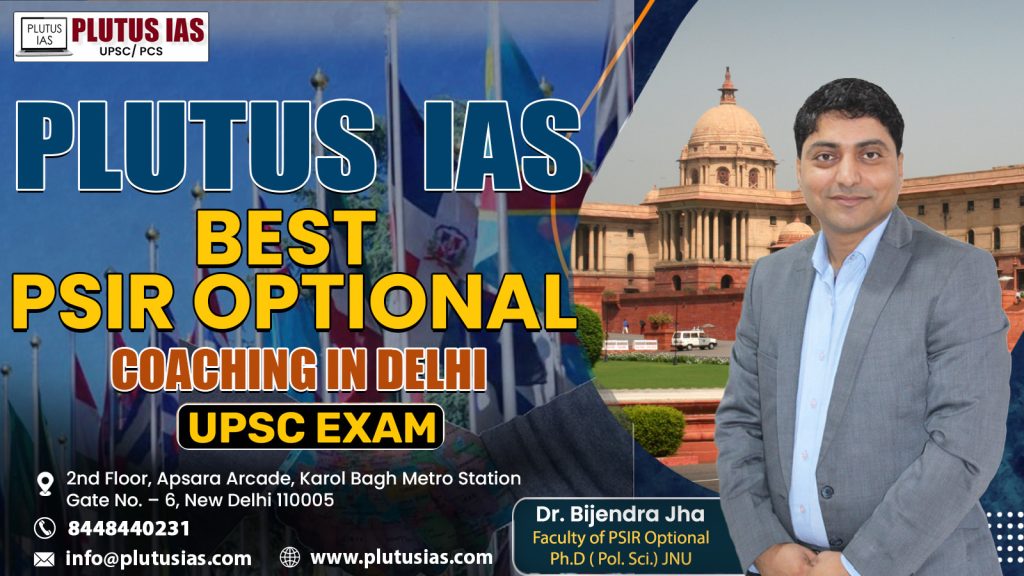
Address:
706 1st Floor Dr. Mukherjee Nagar Near Batra Cinema Delhi – 110009
City:Delhi
Vendor Type:Service Provider
If you are considering Political Science and International Relations (PSIR) as your optional subject for the UPSC Civil Services Exam, here are some essential points and resources to assist in your preparation:
Benefits of Choosing PSIR
- Relevance to General Studies: PSIR is closely related to various General Studies papers, particularly in areas concerning governance, polity, and international relations.
- Enhanced Analytical Skills: Studying PSIR develops critical thinking and analytical abilities, which are crucial for both the exam and the interview stage.
- Manageable Syllabus: The syllabus is concise and focused, allowing for thorough study of important topics.
Overview of the Syllabus
- Political Theory: Key concepts in political theory, such as justice, power, authority, and legitimacy.
- Indian Politics: Analysis of the political framework in India, including the Constitution, political parties, and electoral systems.
- International Relations: Important theories and concepts in international relations, global challenges, and India’s foreign policy.
- Comparative Politics: Examination of different political systems, governance models, and political ideologies.
- Political Economy: Understanding the interplay between politics and economics at both domestic and international levels.
Preparation Strategies
- Standard Textbooks:
- “Political Theory” by Rajeev Bhargav.
- “Indian Government and Politics” by B. L. Fadia.
- “International Relations” by P. K. Chakrabarty.
- NCERT Books: Start with NCERT textbooks for a foundational understanding, particularly for Class 11 and 12 Political Science.
- Online Courses:
- Platforms such as Unacademy, BYJU’S, and Vision IAS provide specialized courses for PSIR optional, offering structured content and expert assistance.
- Consistent Revision: Develop concise notes for quick review and practice writing answers regularly to enhance your articulation and clarity.
- Previous Years’ Papers: Work through past years’ question papers to become familiar with the exam format and the types of questions typically asked.
Additional Resources
- PSIR Blogs and YouTube Channels: Follow educators and content creators who specialize in PSIR for further insights and explanations.
- Study Groups: Join or create study groups to discuss topics and share insights, enriching your understanding of complex concepts.
